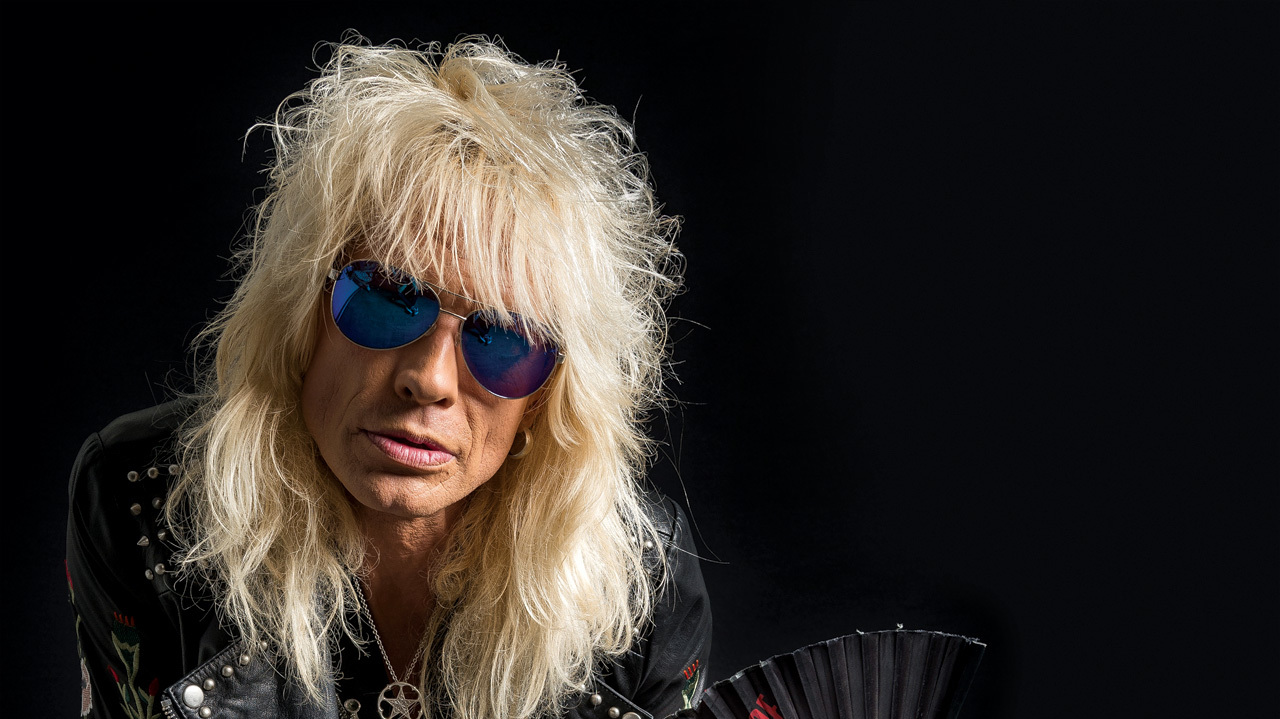Exploding through the door in a jangle of bangles, Michael Monroe is every inch the rock star. Whippet lean, stunningly statuesque, bombshell-blond and carrying off a look mere mortals wouldn’t dare attempt – black waistcoat over bejewelled bare torso, black trousers adorned with more superfluous buckles ’n’ straps than an S&M bondage convention – he collapses into a sofa, crosses a significant yardage of leg and widens his Kohl-smudged, doe eyes to embark upon a revealing journey into an incident-packed past.
So how has the former Hanoi Rocks frontman endured multiple setbacks to enjoy a solo career that only improves with age? “I’m always a rocker, even at home,” he jangles. “Johnny Thunders used to laugh: ‘You don’t even go to the store without wearing make-up.’”
Mike’s the real deal alright. And he’s paid way more dues than most, as we shall see.
You took piano lessons from the age of five. Whose decision was that?
My mother’s, at first. Then, when I discovered rock’n’roll, I decided to take more piano lessons myself. Up until then I’d only heard classical music, but rock’n’roll got me into playing again. I taught myself guitar, then took lessons in classical flute for about a year, which helped me pick up the sax. Andy [McCoy] gave me a blues harp when I was fifteen and I learned that, just sucking and blowing. That’s what I’m still doing, just sucking and blowing. I learnt sax playing along with Little Richard and Coasters records, that raspy, fifties sound.
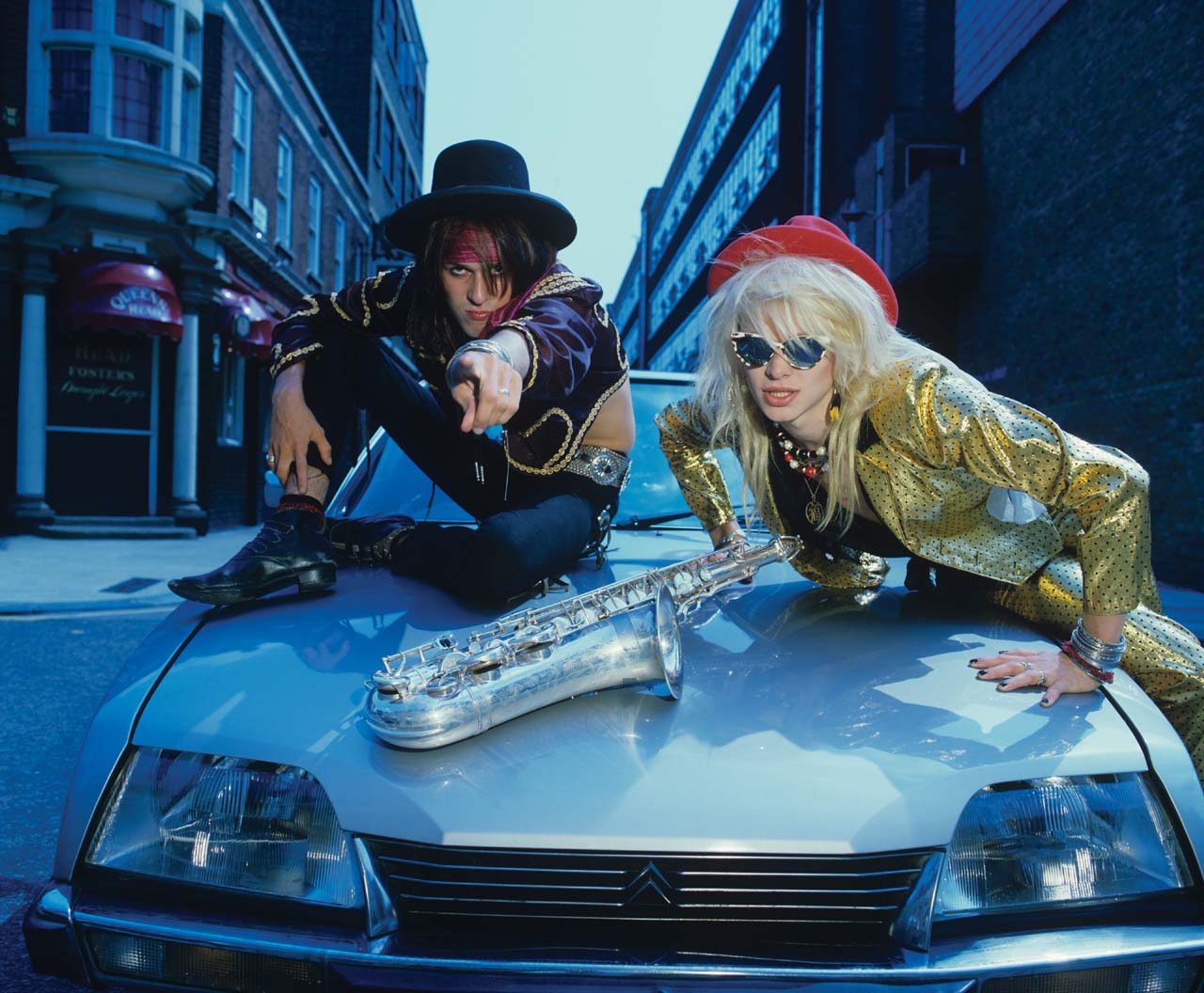
What events happened in your formative years that most influenced your career choice?
I was born in sixty-two, the same year as the Rolling Stones and two months after Marilyn Monroe died. The first band I saw live was Slade in 1972. I’m so glad my mother let me go. I’ve got older brothers so I went with them. The acoustics were horrible, they played so loud I couldn’t hear for two days, but it was great. My second show was The Sweet, right after the Sweet Fanny Adams album. I snuck in for nothing because I was so tiny, and was blown away. I saw Suzi Quatro three times in Finland. At the Finlandia Hall in Helsinki, people stood up to dance and the bouncers tried to make them sit down. Suzi went nuts: ‘Let those people be, they’re just having a good time.’ She was great.
How famous was your dad and what effect did his celebrity have on you when you were growing up?
It didn’t affect me that much, but pretty much everybody in Finland knew who he was. When I was a kid there were only three radio channels, one in Swedish, two in Finnish. Radio announcers had to speak properly and have integrity, and my father was one of the last of that generation. He had an exceptionally soft-sounding voice, and for a lot of lonely old people, his voice was the only company they had at night, so he was very much loved. At first I was known as the son of Pentti Fagerholm, the radio announcer, then it turned around so that he was Michael Monroe’s dad. He was always very supportive and proud of me. He came to a lot of my shows.
Was pursuing a musical career and changing your name a way of claiming your own personality, to be judged as your own man rather than as a famous father’s son?
I never felt the need. Me being a rocker and him being the straight people’s favourite was a cool contradiction. I was always proud of him – he never overshadowed me, nor me him. It worked to both our benefits.
The name change was because nobody could pronounce our Finnish names. My birth name was Matti, but since I was eight I was given the nickname Makke. A Venezuelan keyboard player called me Mike. So when we decided to change our names for Hanoi Rocks, I thought Mike was cool but Michael better. And Monroe, I was born the summer she died, always thought she was classy, beautiful and cool, and Michael Monroe sounded good. At first Andy was going to be Andy Monroe.
Your rock epiphany came watching Black Sabbath on TV when you were eight years old. What was the appeal?
It was so powerful, almost punk. A massive sound like nothing I’d ever heard and the singer was crazy. Going nuts on stage with long hair, wild and free, they sounded like freedom and they were mysterious. They all had their crosses, and I was like, okay, what are these guys about? Then I got their records and started learning English from the lyrics printed on the cover of Master Of Reality. Ozzy’s singing was raw, he had a cool attitude and totally unique sound. Then I found out the lyrics weren’t about the devil at all, but about God, love and light, a great positive message. It’s a misconception that heavy metal should be all about devil worship. Satan sucks, let’s face it. Satan may sell, but he sucks. I dig Jesus’s style.
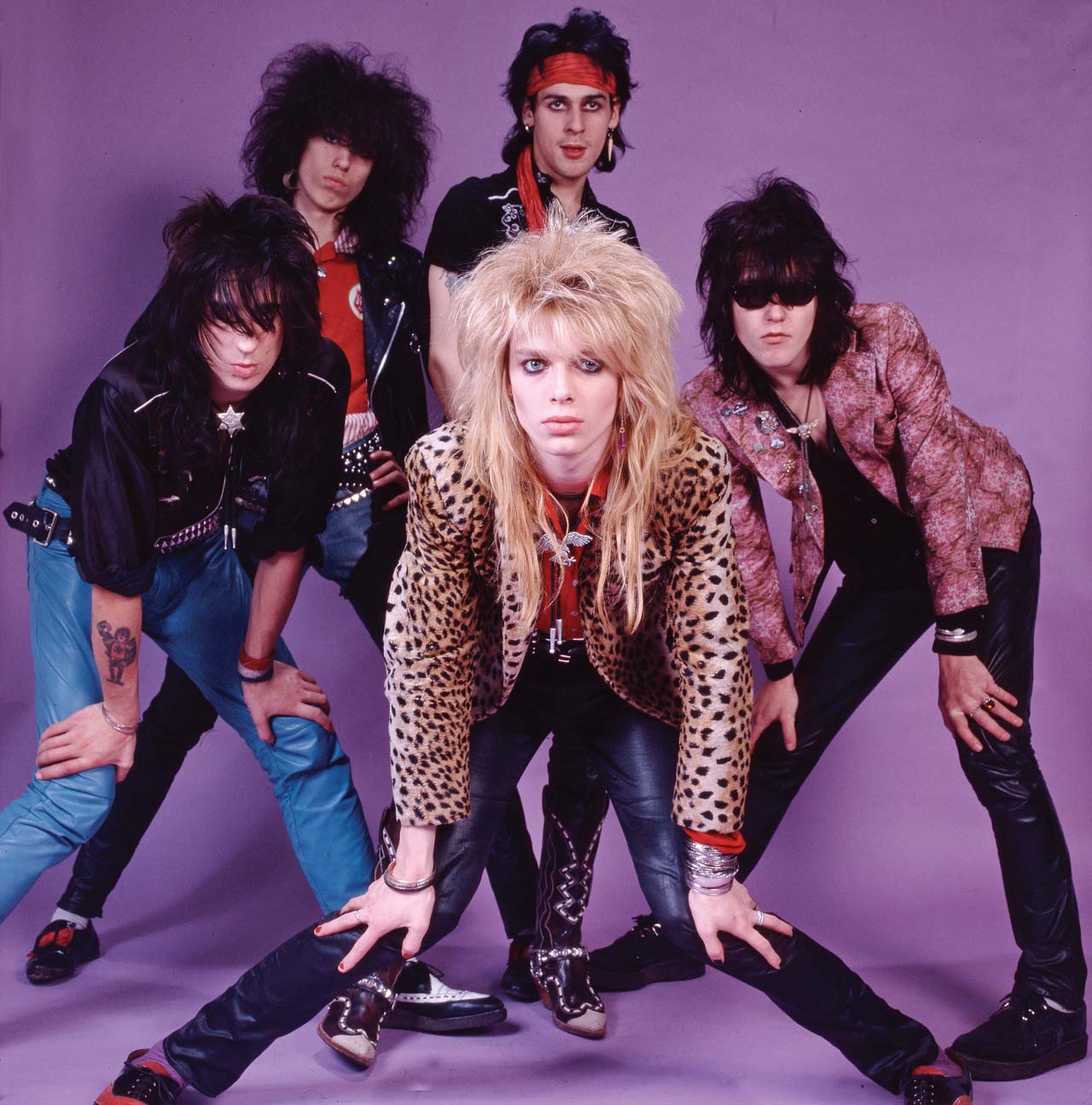
Pre-Hanoi Rocks, you were supposed to join Andy McCoy’s punk band Briard on second guitar, but you refused to cut your hair.
Yes. It was ridiculous. The whole point of rock’n’roll was freedom, being yourself and individuality. The punk thing was great, but “You can join our punk band if you cut your hair”? What, to be in punk fashion? I’m not going to be a slave to fashion. So I said no. And me and Andy started talking about putting a real band together, the way we thought a cool rock band should be, and that’s how Hanoi started. After skipping the army, I wasn’t going to cut my hair just to be in a band.
Between ’76 and ’79 you were in a band called, coincidentally, Madness.
There was a guy, a little older than me. He was in the same class as one of my brothers and wanted to be a singer. He had an electric guitar and amp, so I’d hang out and play. We saw punk and thought you don’t have to be such a good player, so we wrote some songs and played a party at his house. The drummer also played with Andy in Briard, and we shared a rehearsal room in the basement of a Helsinki church, where I met Andy. Andy thought I was a guitarist at first. Then I told him I wanted to be a singer and we started hitting it off.
Between school and the musical career taking off, how did you support yourself?
When we started Hanoi Rocks we were homeless. I had a few hundred Finnish marks, not much, when I left home and ended up in Stockholm. So me, Sami Yaffa and Nasty Suicide were living on the streets for the first six months, begging for change. We’d beg enough to get a hamburger to share, or a bottle of wine to forget about the hunger. We befriended other homeless people. We’d sometimes go to a bar and I’d chat up some girl, and when she’d invite me to her house, I’d say: “Do you mind if my friends come along?” Then when we got to the house we’d head straight for the fridge.
After six months of rehearsing, Zeppo, who’d expressed an interest in managing us before we left Finland, came to Stockholm to check us out at the rehearsal place. We played our set, he thought it was great, started booking us shows in Finland, and that’s how we started making money. Andy McCoy wasn’t on the streets. He had a girlfriend [laughs].
The Hanoi Rocks story has been told many times, so let’s just touch on a few key moments. Firstly, was relocating to London an absolute necessity?
Yeah. Stockholm was just a stopover. We wanted to make it internationally, and London seemed like the centre of the action back then. In the late seventies in Finland, looking like us was suicide. The general atmosphere was negative, people were very narrow-minded and intolerant of anything different. Hanoi changed a lot of that. We added a little colour and forced the Finnish people to be more open-minded. They hated us until we started getting famous abroad, then ‘Look at these freaks, faggots, junkies’ became ‘Our boys waving the Finnish flag abroad’. I always considered us an international band – we never got anything from Finland but shit at first.
When you arrived in London, what you were doing was counter to the prevailing post-punk landscape, but a scene soon developed around you.
We were just a rock band that wanted to look good. From Little Richard to the Rolling Stones to the Ramones to punk, reggae, blues, we took influences from anything. They tried to call us heavy metal, they tried to call us punk, then they finally came up with the glam thing. I remember someone writing that “the glam revival was started unintentionally by a band that doesn’t even do glam”. Which is true. We were just a rock band.
Hanoi immediately gained a reputation for overindulgence and mayhem. A report of your trip to Israel and its accompanying photos came to define the band, but you personally always seemed a lot more focused. How did you deal with the chaos?
I was always like: “What am I going to wake up to next?” “What have the guys done now?” I’m amazed we got out of Israel without being thrown in jail. They were drinking twenty-four hours a day. Not trying to get a reputation – it’s just the way they were. Maybe it’s part of being Finnish. They’d always get into situations that’d get out of control. I mean, Nasty Suicide…
The clue’s in the name, isn’t it?
Yeah, really. He had some kind of karma. If a bird shit near him, it wouldn’t land on a car or on the street, it’d land on his shoulder or his head or something. He was like a bad luck charm. Always got into trouble, and always at the worst moment. It was almost comical. I wasn’t more focused than the other guys, I just wasn’t as out of it. I never liked drinking. I had my own demons, and I went through a lot of stuff I kept to myself.
How was life as ‘the most beautiful man in rock’? Were you in a relationship, or did your reputation leave you the most unapproachable man in rock?
[Laughs] I was unapproachable on purpose. I liked to be left alone. I’ve never been with a groupie in my life. I was never interested in casual relationships. I was always too serious. I’d have long periods of contemplation. I’d be almost depressed, quite melancholy. I enjoyed wallowing in my misery sometimes.
But there was a time when I was very lonely. In eighty-three I was mainly wearing black and white and was very lonely for a very long period of time, but in eighty-four I started lighting up again. When me and [late Lords Of The New Church vocalist] Stiv Bators hit it off, I started wearing all the colours under the sun and life started becoming fun again.
I went through a drug thing, but got to a point where I said, “I’ve got to stop everything or I’m going to lose my mind.” I started exercising and swimming. I’d run to the local pool, swim for an hour or two without stopping, run home, eat a little muesli and have a salad for dinner. I was so skinny I could touch my fingers around my waist. I started looking like an old man even though I was only twenty. Looking back on it, I was anorexic. It was my way of saying “screw you” to everyone.
I was skinnier than Andy. Even though Andy doesn’t have much muscle tone because he never exercises, except for this [raises a bottle], he gets enough exercise pushing his luck. At least I was muscular, because I was exercising all the time – over-exercising. And without acknowledging it, I was on a liquid diet. I was skin and bone. Then we had three weeks off in August eighty-four and I went to the Finnish countryside where I spent my summers as a kid with my mother’s home-cooked food. I started eating normally, little blueberry pies, my favourite foods. I was still exercising so the weight came on evenly. I didn’t even notice.
So being off the road put you in a better place mentally.
Yeah. All of a sudden I’m back to normal.
- The Car Crash That Killed Hanoi Rocks' Razzle: 'Vince Neil never apologised…'
- The 10 best songs recorded by Hanoi Rocks between 1981–1984
- The TeamRock+ Singles Club
- TeamRock Radio app back on Apple’s app store
Living in the midst of the most mayhem-filled rock band in the world can’t have been the easiest place to be when you’re feeling lonely.
Very lonely.
And being told you’re the most beautiful man in rock didn’t help.
It doesn’t mean anything. It’s flattering, but freaky. Most people think you’re a girl [laughs]. I’d walk down the street and hear: “Alright, babe. Nice ass.” In Sounds’ Readers’ Poll in 1985 we were in every category. I was number one in Sex Object. I wanted to be known for my talent as a musician rather than as just a pretty face. It didn’t hurt to be pretty, but it can put you in a very lonely place, alone in a crowd with people patting you on the back. But they’re not real friends and they don’t really know you. The irony is you’d think anyone in that position would also be the happiest, richest and most successful, but I had nothing. No friends outside the band, and I was even alienated from them because they resented me for not drinking twenty-four hours. I was quite lonely a lot of the time.”
Razzle’s arrival, in 1982, changed the Hanoi Rocks dynamic.
He made Hanoi perfect.
What was the magic that he brought?
His attitude, his spirit, brought us back to life. The band was at a low point around that time. We were getting into some seriously bad shit with Andy hanging out with hard-core junkies. Razzle wasn’t great technically, but he had that gung-ho, us-against-the-world attitude and fit in with the band’s style perfectly. I loved that he was totally determined to be in the band, and when he joined we were a real gang.
You were all clearly heartbroken by Razzle’s death in 1984. You’d lost a close friend and, looking back, it was emblematic of the end of the Hanoi dream.
That’s right. And we weren’t strong enough to survive such a huge blow, the devastation of losing a best friend. Right in the middle of the craziness and supposedly fun times, this tragedy happened. Sami Yaffa leaving the band was another deciding factor. Everybody was vital to the chemistry of that family unit, so without Sami there was just me, Andy and Nasty left. The new guys had the wrong attitude. They’d have been a disaster and ruined a good memory of a great band. That’s why it was crucial to finish Hanoi Rocks [in mid-’85], put it to rest with integrity intact. If we’d persevered and become one of the biggest bands in the world, it would have been even worse. No matter how much money we’d have had, no matter how much fame, it would have been cursed.
It was a hard time, I had no idea what I was going to do. Stiv Bators was my only friend. Andy and Nasty were really down there [drinking], and I was up there [sober]. So there was no connection. Nasty was cool, though. When they decided to put the Cherry Bombz together, he came round and asked if we could go out to lunch so he could tell me he was planning to join Andy’s band. I really appreciated the gesture and gave him my blessing.
On your return to London following Razzle’s death, you guested on stage with the London Cowboys at the Fulham Greyhound on New Year’s Eve ’84. A fateful night?
Yeah, a really important night. Stiv’s wife Stacy disappeared with Andy McCoy, and me and Stiv connected. I remember Stiv saying: “Do you think those guys are in love, or is it just the smack?” We ended up back at Stiv’s place, singing harmonies. I looked after Stiv’s cat, Ziggy, when he was on tour, and eventually moved in. After that we became really close. I was a big fan before we met and we made a strong connection spiritually. He encouraged me to start my solo career and to start writing songs. That’s when I decided, “Okay, I’ll be Michael Monroe and continue solo.”
Why did you relocate from London to New York City to put your first solo band together?
Little Steven came over to produce the Lords Of The New Church Lord’s Prayer single. Stiv knew what a big fan I was, so he brought him over. Stiv showed him the Hanoi Rocks Boulevard Of Broken Dreams video, and Steven was like: ‘What the fuck is this? This is the greatest band I’ve ever seen, man. What are you guys doing now?’ So I told him the whole story, and he decided he wanted to help me with my solo career.
While we were recording demos, Steven was also working on the Sun City project, so he invited me and Stiv to sing on it. Appearing on Sun City, collaborating with Miles Davis, Pete Townshend, Bono, Keith Richards, Ronnie Wood, Bob Dylan, all these great people, was the first thing I did in my solo career. I felt so proud to be part of it. Stiv and I sang our parts in London, then Steven flew us over to do the video in New York. We slept on Stiv’s friend’s floor for a week, and I decided to move to New York and start over. The memories in London had become sad since Razzle died, so I figured it was time for a new start. So I moved, started meeting musicians, and eventually made the Nights Are So Long album. It was only released in Scandinavia and Japan at first, so I used it as an international demo, got signed to Polygram and made my first worldwide album, Not Fakin’ It.
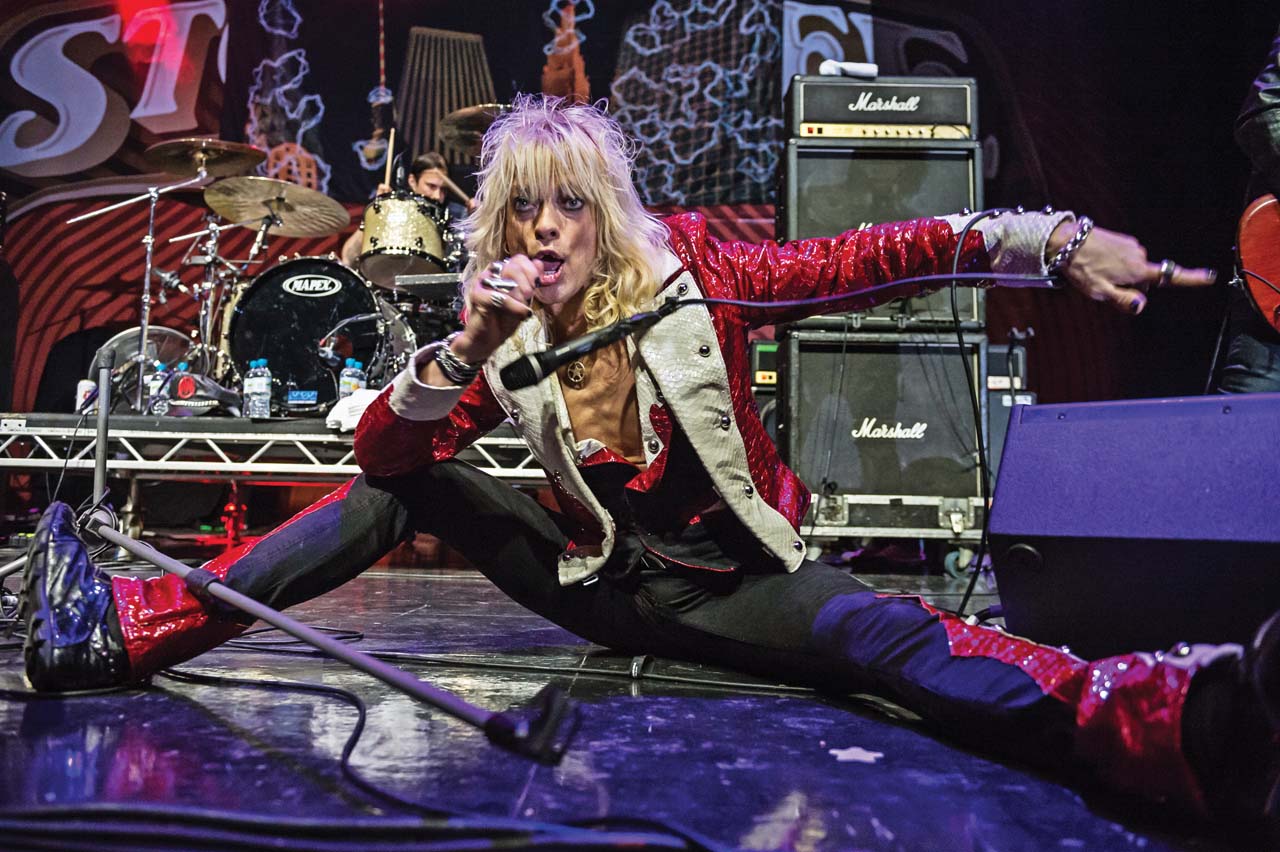
From Nights Are So Long onwards, all evidence suggested you were about to break big, but sales remained modest. It must have been a frustrating time?
When promoting Not Fakin’ It, the label made a TV commercial that said ‘Michael Monroe, He’s Not Fakin’ It, The brains behind Hanoi Rocks’. Most people wouldn’t have noticed, and I probably would have been fine leaving it alone, but I couldn’t live with it. I called the label and said: “You can’t say: ‘The brains behind Hanoi Rocks’ – it wasn’t planned, it was spontaneous.’ So they said: “You don’t like the ad? You want to pull it?’ And I said yes. I thought they were going to make a new one, but they pulled the plug on the whole record.
Then Steve Stevens called and said he should be my guitar player, so I figured maybe this could be something. We worked on songs for a year and became friends. I wanted Little Steven to produce the album [released under the name Jerusalem Slim], but the label chose Michael Wagener, a heavy metal producer from Germany. That combination was the worst. The record turned into a nightmare, the worst thing that ever happened to my career. It ended up costing me seven hundred thousand dollars to make a record everybody hated.
After recording the vocals in LA there was supposed to be a couple of weeks of guitar overdubs, which ended up being three months of guitar hell. Steve started doubling and quadrupling parts and solos, with Wagener encouraging him to do all this noodling, flashy stuff. I tried to stop it at three hundred thousand dollars. I got my A&R guy to come from New York to California, and I said: ‘Look, man, I’m begging you. Stop this.’ Wagener played him some songs, and he was like: “Hey, this song’s great. It’s cool, dude.” And I said: “It’s not my record any more. It’s my deal and it’s gone right to fucking hell. What do you want? To spend three hundred thousand more dollars and then realise it’s a piece of crap that nobody will love?”
Finally, Steve started redoing Sami Yaffa’s bass parts, took the soul out of the whole record. Then when it came to mixing, Steve had a falling out with Wagener. He came to me and said: “He’s mixing it all wrong.” I said: “What!? Now you’re telling me this? Jesus. It’s wrong from the beginning.” So he said: “The only thing we can do with this record is scrap everything and start over.” Then he went to New York and disappeared. The next time I saw him he’s on the MTV Awards playing guitar for Vince Neil, of all people [following the road accident that led to Razzle’s death on December 8, 1984, Mötley Crüe’s Neil was charged with vehicular manslaughter and driving under the influence of alcohol]. Though, I’ve got to say, I never blamed him. How can you blame someone for a horrible accident?
After that it took me over a year to get off the label. I had a major deal, was contracted for six or seven albums, but I’d never see a cent because I already owed a million, so the only thing to do was get off the label. Then one day, thank God, I was dropped. My next move was to make the Demolition 23 album with Little Steven. We did it in two weeks – recorded the basic tracks in three days, the vocals in two days, then we mixed it – and it was one of the best records I’ve ever done.”
Demolition 23 was almost a second incarnation of Hanoi Rocks, then Nasty Suicide retired from the music business. Another blow?
[Laughs] Yeah, just my luck. Two steps up and five steps back. First of all Jay Hening, the guitarist on the album – great player, nice guy – got hit by a car and broke his leg. When he was finally better, we were just about to go on tour and he got arrested for scoring drugs. My lawyer bailed him and he avoided jail, but couldn’t leave the country, so we brought in Nasty. Then during the next tour Nasty said that he was going to stop playing altogether.
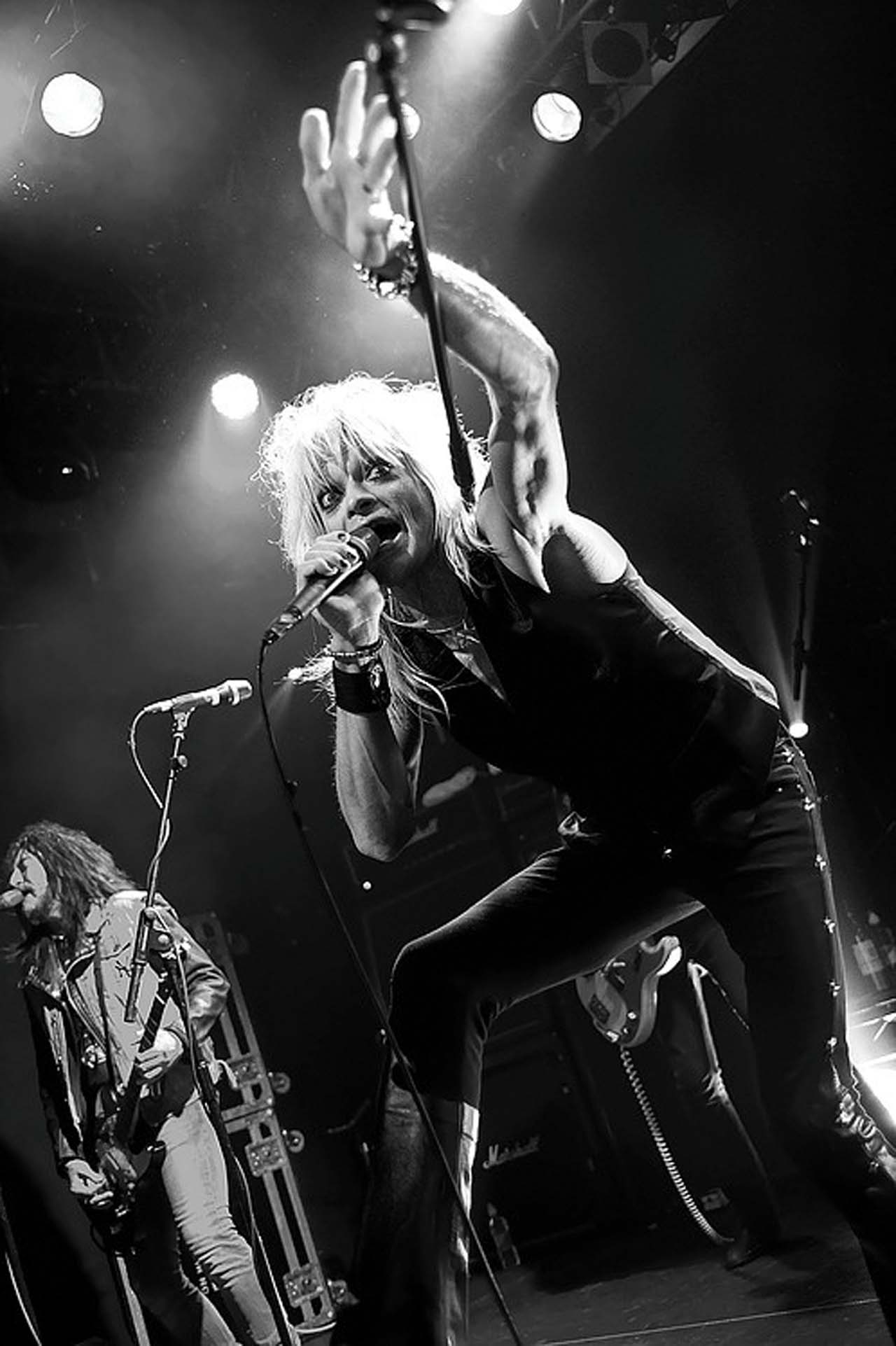
What prompted your return home, from New York back to Finland?
Though I was born in Helsinki, I spent all my summers in the countryside as a child and learned to appreciate the natural environment. My brother, who’d built himself a house there, fixed up an old house, and me and my wife Jude and our cat Susi moved in. From one extreme to the other, Manhattan to the middle of nowhere.
The first year was great. I had no TV, was feeling good, really creative, chopping wood, shovelling snow. Then in the second year it turned out there was a mould problem and we had to get out. I found another house even further into the woods. Then that house developed a mould problem, so we moved to Turku in February 2000.
In 2001 my late wife passed away, completely unexpected, totally devastating. I ran into Andy McCoy and he seemed pretty together. He’d fallen off a three-storey balcony and the doctors said he should be dead and would never walk again, but he’s walking now.
I was trying to keep as busy as possible. After losing Jude I never thought I’d find anybody again. But in 2002 I met my current wife, Johanna, who’s a hairdresser and was doing my hair. We moved in together and I found happiness again. Eventually. But at first I just wanted to work as much as possible. So me and Andy started doing some stuff. I thought it’d be interesting to see what we could accomplish after all these years. I never thought we were going to use the name Hanoi Rocks – the thought of a rebirth never occurred to me. I’d never do a one-off reunion tour just to make money. We had to create something new, be an actual band again.
It’s fair to say Hanoi Rocks’ re-formation was a success. Three albums in four years represents a pretty good second bite of the cherry.
Yeah. Good records were made and we maintained the band’s integrity in a way that didn’t ruin it. It was a big step for me to call it Hanoi Rocks. I called Dregen and asked: “Is this blasphemy, or what?” He said: “No, man, it’s great. It’s not a reunion, it’s a rebirth, and there’s a big difference.” We had fun, and being Hanoi, we could experiment with all kinds of musical styles, but it ran its course. The Street Poetry album was good, featured the best line-up, but it wasn’t fun any more for other reasons. So I called Andy and said, “Let’s call it a day, do some farewell shows and put the band to its final rest.”
On the final Hanoi Rocks tour, in 2008, we spoke about the split. You said you wanted to drop the glam, toughen up musically. But it was pretty obvious from Andy’s demeanour that working with him must have presented problems.
Yes, it was a challenge at times. At first he had a new spark, but it started sliding back to the old thing, the resentment I never understood. We’d be in the studio and I’d have to catch him early in the afternoon before he had one beer too many. So it was no fun.
Relaunching your solo career in 2009, you reconnected again with Hanoi’s Sami Yaffa.
Yeah, he came to Finland with the New York Dolls, invited me up to jam and we hung out until four in the morning. Sami said he wanted to work with me again, so I thought, “Wow, that’s almost half a band right there.” Then Ginger and Steve Conte got on board, we made a live album and started working on new songs.
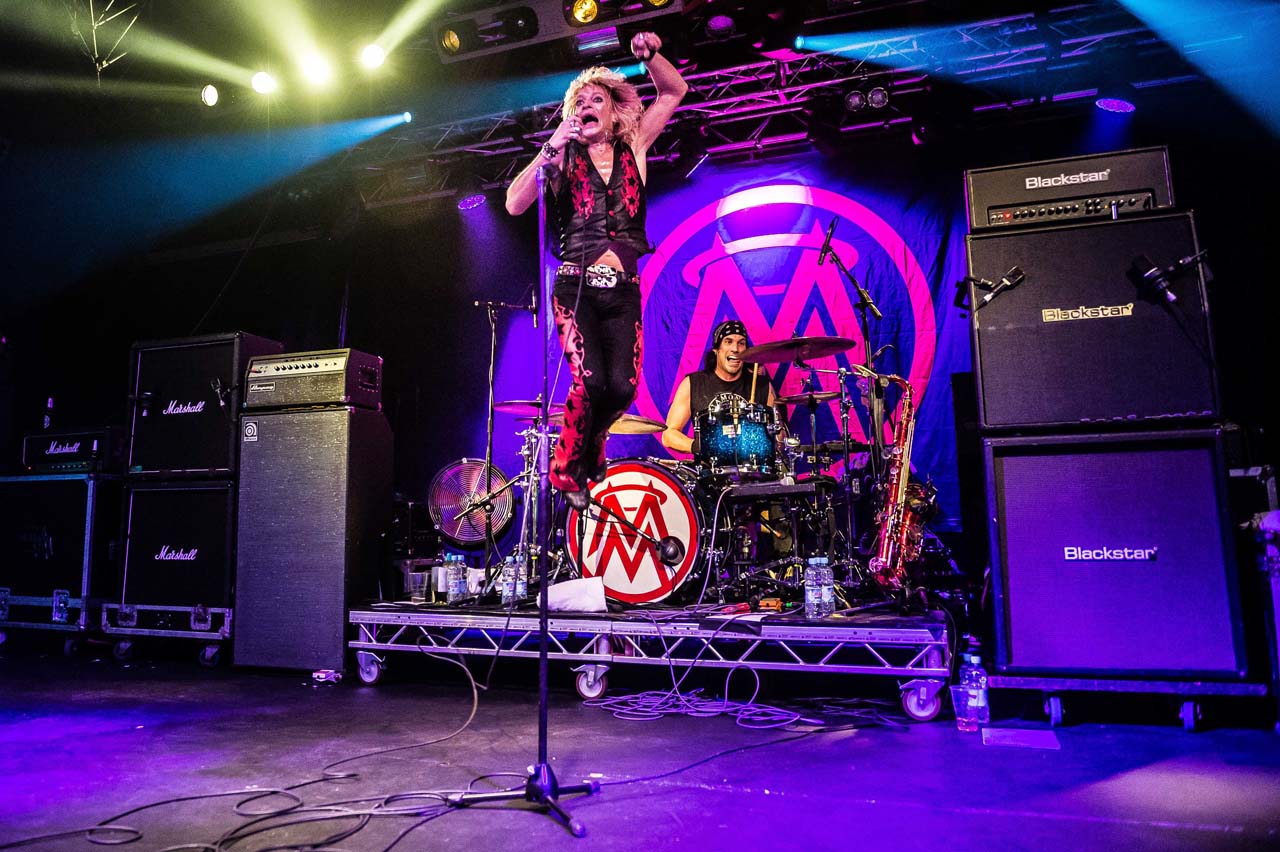
2011’s Sensory Overdrive showed that you and Ginger wrote brilliantly together.
He’s a really great songwriter. We wrote some great stuff and it was so much fun doing the demos.
You must have known that working with Ginger could only be temporary – he’s too much of a tireless creative mind to ever be bound by a single project – and replacing him with Dregen moved the musical dialogue forward again.
Dregen was the only guy I could imagine replacing Ginger. At first Ginger just wanted to be the guitar player in a band, didn’t want the pressure of being the frontman, and it was great for a whole year. I remember Lemmy saying: “How’s it going with him?” like it was going to be a problem. I said: “He calms me down. I love the guy, I’m having a great time. What are all these problems people keep talking about?” Then he just wanted to move on, and the only guy I could think of was Dregen. I’d actually asked him to join before Steve Conte but he was busy with a solo project. He was the only guy I wanted. You can’t have a session guy in this band, you need a personality, and he’s such a character. What Slash is in America, Dregen is in Sweden.”
You’re a hell of frontman. In Hanoi’s early days you were bending your body into all kinds of impossible shapes. Do you still train hard, or are you just a naturally bendy dude?
[Laughs] I can do the splits, so I guess I’m what you’d call double-jointed. Which doesn’t mean I smoke two joints a day.
Can you still fold yourself in half backwards?
I used to. I’d be playing harp, bend over backwards, land on my head and then lift myself back up without my hands. I’m sure that’s why my lower back started causing me problems in 2008. The bones in my lower back had worn out. I was in such pain after every show, I started thinking maybe it’s over. Then I went to three different physiotherapists who all told me different things, so I applied whatever I thought worked for me. The inner stomach muscles support your back, so I exercised those for three months, started feeling better and eventually got rid of the pain. I figure maybe I’ve got another twenty years left, so I’ve been concentrating on exercising lately.
The day will come when you’ll just snap like a twig.
I’m working on avoiding that, and being able to do what I do and not be in too much pain. I don’t like taking painkillers – exercising’s the key and the best exercise is performing. You’ve got the show and the audience as your motivation.
Now that guitarist Rich Jones is in the band, the material is moving in another subtly different direction.
Yeah. People tell me the last three albums are the best I’ve done, and that’s what I strive for. Rich Jones, Steve Conte, Karl Rockfist, Sam Yaffa feel like the greatest band I’ve had in my solo career. The spirit’s there, the chemistry, and as far as writing songs goes, Rich and Steve know me so well they get inside my head.
**Is the success all the sweeter for having arrived relatively late in your career and also at no little cost?**
Yeah, I can appreciate it and I’ve certainly paid my dues. People say you have to suffer for good art, but I don’t have to suffer any more. I’ve enough character, and I’m happy. In fact, I’d say I’m happier now than I’ve ever been. I have the best band I could hope for, I’m happy at home with my wife and three cats. What more can you want from life?
MM’s The Best is out now via Spinefarm
